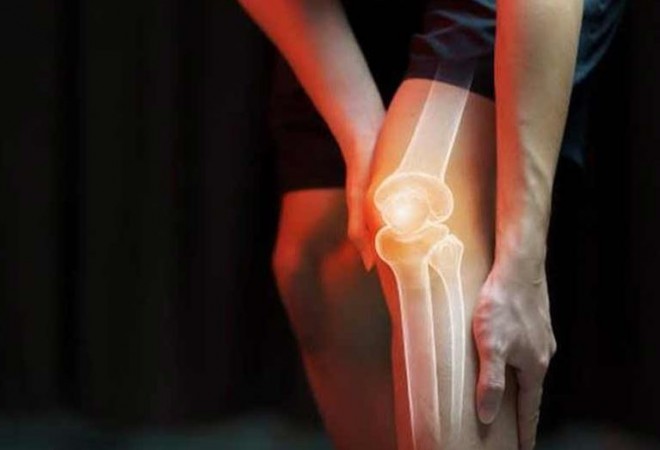
As the years roll on, maintaining strong and healthy bones becomes increasingly (how to bones strong) crucial. Bones play a pivotal role in supporting our body's structure, mobility, and overall well-being. With age, the risk of osteoporosis and other bone-related issues tends to rise, making it essential to take proactive measures to fortify our skeletal system. Contrary to common belief, bolstering bone health doesn't necessarily require costly treatments or supplements. In this article, we'll explore five affordable and accessible strategies that (how to bones strong) can help maintain strong bones well into old age.
Nutrient-Rich Diet
One of the foundations of maintaining strong bones is a nutrient-rich diet. Consuming foods rich in calcium, vitamin D, and other essential nutrients can significantly contribute to bone health. Calcium, as the main building block of bones, is crucial for maintaining bone density and strength. Dairy products like milk, cheese, and yogurt are well-known sources of calcium. However, for those who are lactose intolerant or prefer plant-based options, there are plenty of alternatives. Leafy greens like kale and spinach, fortified plant-based milk, almonds, and sesame seeds are excellent non-dairy sources of calcium.
Vitamin D plays a vital role in calcium absorption, making it necessary for bone health. While sunlight is a natural source of vitamin D, incorporating foods like fatty fish (salmon, mackerel), egg yolks, and fortified foods into your diet can help ensure adequate vitamin D intake.
Regular Exercise
Engaging in regular physical activity is not only good for cardiovascular health but also crucial for maintaining strong bones. Weight-bearing exercises, which involve supporting your body's weight through your bones, stimulate bone formation and strengthen existing bone tissue. Activities like walking, jogging, dancing, and resistance training are excellent choices. Even if you have limited mobility, low-impact exercises such as swimming and cycling can still provide benefits for overall bone health.
Exercise also enhances muscle strength, balance, and coordination, reducing the risk of falls that can lead to bone fractures, especially in older adults. Combining aerobic exercises with strength training can be particularly effective in maintaining bone health.
Maintain a Healthy Lifestyle
Unhealthy habits like smoking and excessive alcohol consumption can have a detrimental effect on bone health. Smoking reduces blood flow to bones and decreases bone density, increasing the risk of fractures. Additionally, excessive alcohol consumption interferes with calcium absorption and weakens bones over time. Limiting or quitting smoking and moderating alcohol intake are essential steps towards promoting bone health.
Adequate sleep is often overlooked but plays a critical role in overall health, including bone health. During sleep, the body repairs and builds new bone tissue. Aim for 7-9 hours of quality sleep each night to support your bones' natural regenerative processes.
Hydration Matters
Staying hydrated is often associated with benefits for the skin and organs, but it's equally important for bone health. Water is essential for transporting nutrients and minerals, including calcium, to cells and bones. Dehydration can lead to an imbalance in electrolytes, affecting bone health. Aim to drink an adequate amount of water throughout the day to keep your bones properly nourished.
Incorporate Bone-Supporting Foods
Beyond the staple foods rich in calcium and vitamin D, several other foods can contribute to bone health. Foods high in magnesium, potassium, and phosphorus play roles in bone formation and maintenance. Magnesium-rich foods like nuts, seeds, whole grains, and legumes support bone density by aiding calcium absorption. Potassium helps maintain an optimal pH balance in the body, which is crucial for bone health. Bananas, potatoes, and leafy greens are excellent sources of potassium. Phosphorus, found in lean meats, dairy products, and whole grains, is a major component of bone mineral composition.
Investing in bone health doesn't necessarily (how to bones strong) require a hefty budget. With a focus on a nutrient-rich diet, regular exercise, healthy lifestyle choices, proper hydration, and the incorporation of bone-supporting foods, you can take proactive steps to maintain strong and solid bones even as you age. These affordable strategies can have a significant impact on your bone health and overall quality of life. Remember that prevention is key, so start implementing these practices early to reap the benefits in the long run. Always consult with a healthcare professional before making significant changes to your diet or exercise routine, especially if you have pre-existing medical conditions. By prioritizing bone health, you're investing in a strong and vibrant future for yourself.
How to effectively remove scars and marks ?
10 Methods for Achieving Silky Smooth Skin
Want Hair Without Frizz? Follow these 7 Essential Haircare Suggestions